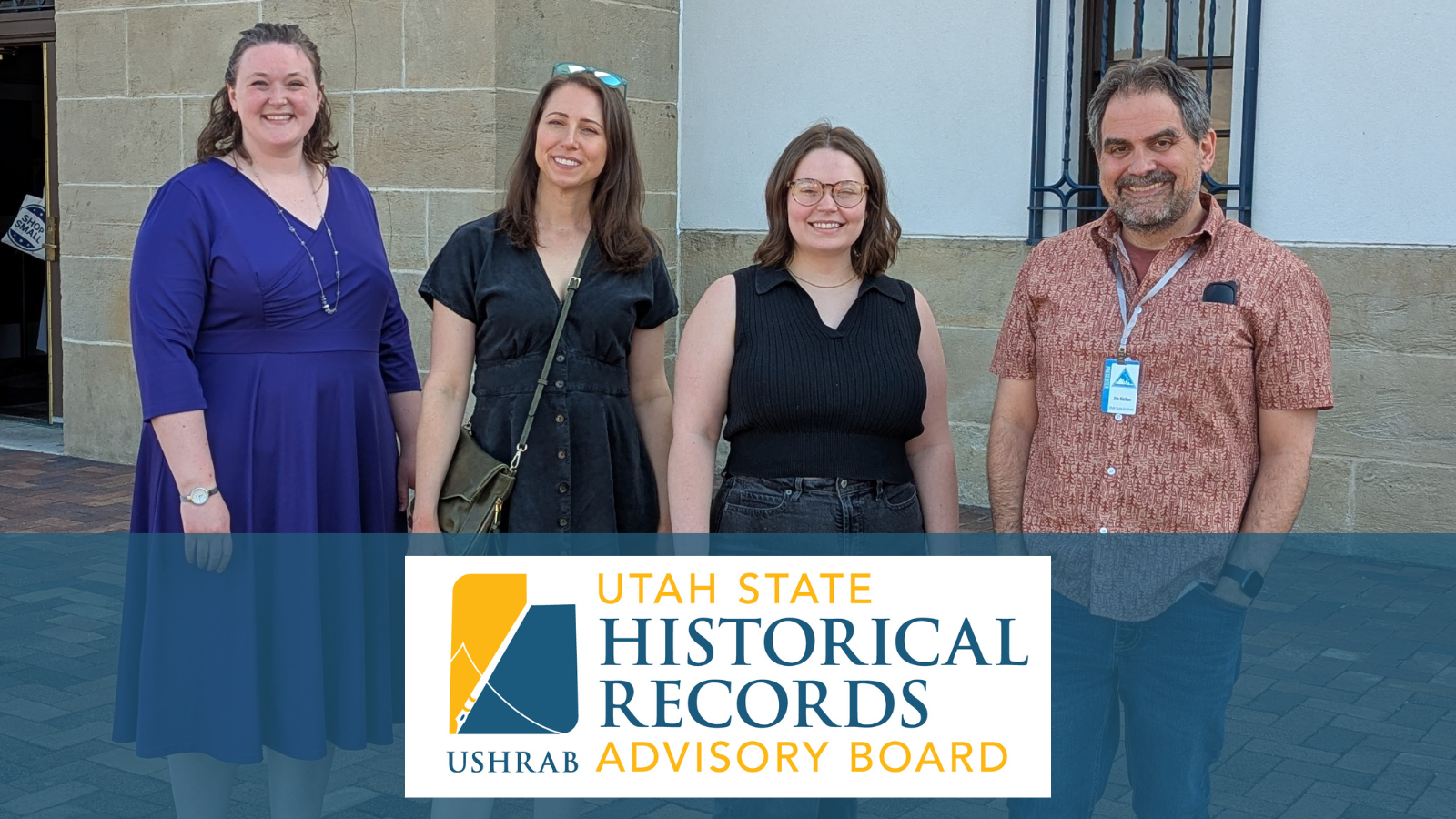Keeping Everything? Applying General Retention Schedules
Utah has general retention schedules designed to assist governmental agencies in managing their records. These schedules provide a description of the records, a suggested GRAMA classification (public, private, protected , controlled, or exempt), a length of time that they must be kept (retention), and a final disposition for the records. The disposition of records falls into two categories: 1) destroy the records, or 2) maintain them permanently, which might include sending them to the Utah State Archives and Records Service. The challenge of applying these schedules comes when it is time to assess an entity’s records and then, ultimately, decide what to do with them.
, controlled, or exempt), a length of time that they must be kept (retention), and a final disposition for the records. The disposition of records falls into two categories: 1) destroy the records, or 2) maintain them permanently, which might include sending them to the Utah State Archives and Records Service. The challenge of applying these schedules comes when it is time to assess an entity’s records and then, ultimately, decide what to do with them.
One question when managing records is: how many copies of a record does an agency need to keep? The Utah Public Records Mangement Act only addresses one record copy. This law does not specify a format. So, unless specified in another statute the record copy can be electronic, on microfilm, paper, a video cassette, compact disc, or etched into stone. The key is that one copy is designated as the record copy, and then managed according to the State Records Committee (SRC) approved retention schedules.
There are good reasons to keep duplicate copies. One reason is as a backup to protect against loss of the record copy. Essential records may need to be protected by layers of redundancy. Another reason is to provide easier or wider access. Sometimes several governmental entities use and share the same records. Duplicate copies should be purposefully created and managed, even though they are not required to be kept according to a state schedule. Duplicate copies can be kept for as long as an agency decides and can be disposed of once their administrative need ends.
Once the record copy has met its retention it should be disposed of according to the approved schedule, unless there is an identifiable reason to keep it. This means that even duplicate copies ought to be destroyed if the disposition of the record copy is “destroy”. If a record copy has met its retention and has been destroyed, but duplicate copies still exist, an agency is still responsible for the duplicate copies. Duplicate copies are discoverable if litigation should occur even if the record copy no longer exists. Duplicate copies take up space, may increase an agency’s risk, and unless they are well managed, may ultimately make it harder to locate records that are needed.
Another question that ties to records disposition is: does an agency need to keep copies of records created by another agency? For example, the Archives might send another agency a copy of the SRC’s meeting minutes for reference. The retention period for meeting minutes is permanent (State General Schedule 1-51). How long does the agency that received the copy need to keep the meeting minutes? Do they need to keep them in accordance with the general retention schedule? The answer is that they do not need to keep them at all. The record copy is usually designated and held by the agency that created the records or by the agency that requested or required the record to be created. In the above example, the Archives, as the creating agency, is responsible for keeping the meeting minutes; and anyone else holding copies of the minutes has no responsibility to maintain them. Duplicate copies of records maintained by another agency should be kept only for as long as they are needed, and then should be returned to the creating agency or destroyed. Additionally, if an agency receives a GRAMA request for records created or maintained by another agency, the agency that receives the request should redirect the request to the agency that maintains the record [UCA 63G-2-204(2)].
Recent Posts
Authors
Categories
- Certification/
- Digital Archives/
- Electronic Records/
- FAQ/
- Finding Aids/
- General Retention Schedules/
- GRAMA/
- GRAMA FAQs/
- Guidelines/
- History/
- Legislative Updates/
- News and Events/
- Open Government/
- Records Access/
- Records Management/
- Records Officer Hub/
- Records Officer Spotlights/
- Research/
- Research Guides/
- RIM FAQs/
- Roles and Responsibilities/
- State Records Committee/
- Training/
- Uncategorized/
- Utah State Historical Records Advisory Board/




